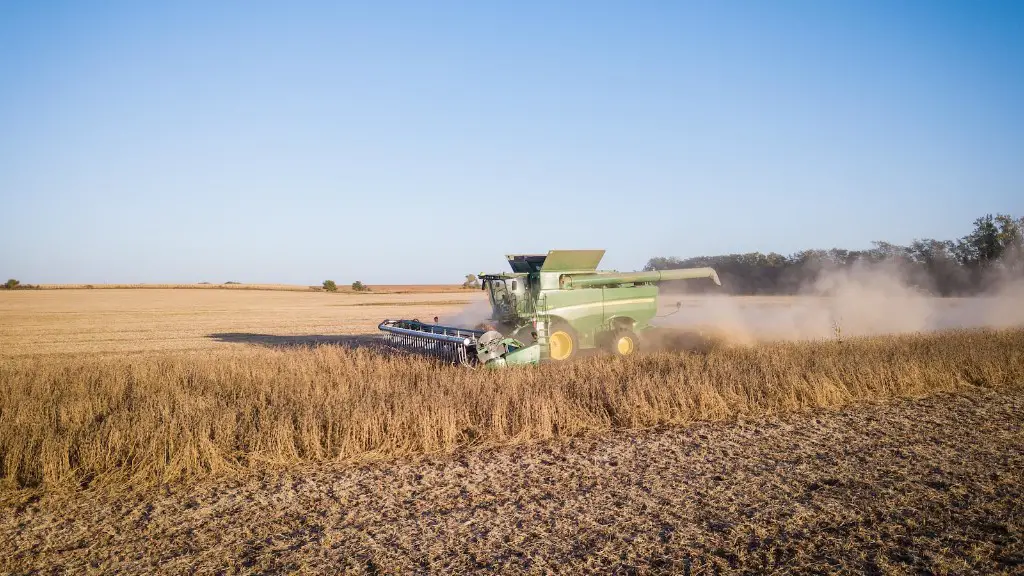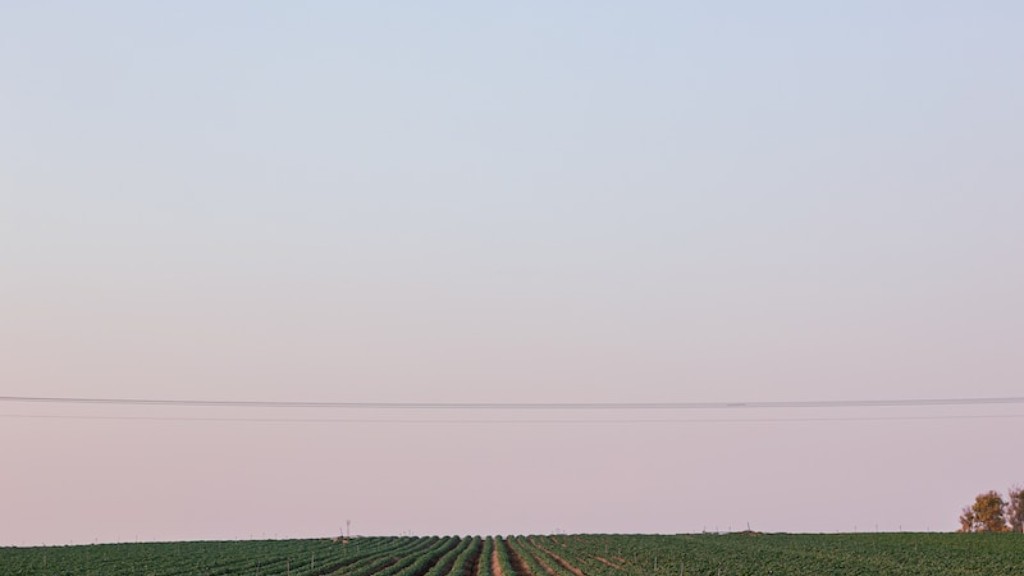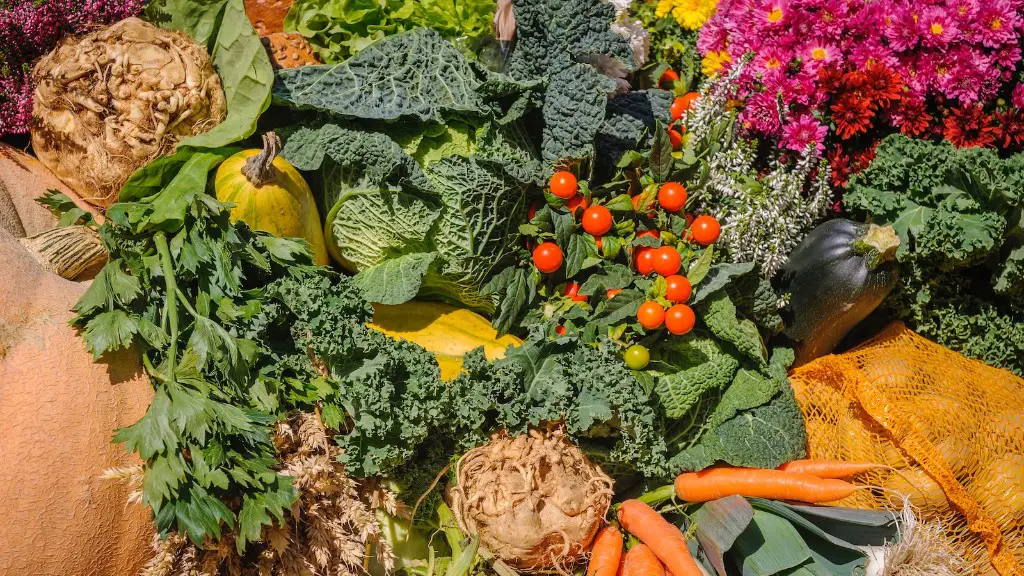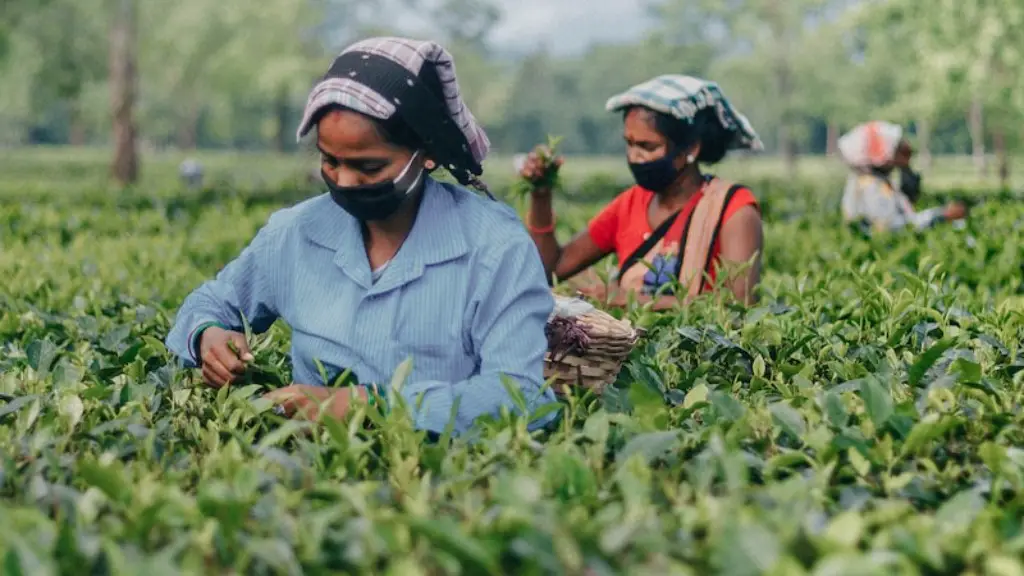Agriculture has a big impact on the environment. The way we farm today has changed a lot from the way our ancestors did it. We now use more pesticides, herbicides, and synthetic fertilizers. We also grow bigger crops and raise more animals. All of this has an impact on the environment.
Agriculture has a profound impact on the environment. The way we grow and raise our crops and livestock can either contribute to or degrade the quality of our air, water, and soil. In addition, agriculture is a major driver of deforestation, land-use change, and sometimes, desertification. As the world’s population continues to grow, we will need to find ways to produce more food with fewer negative impacts on the environment.
What are 3 effects of agriculture on the environment?
This type of farming is not sustainable in the long term. We need to move towards more sustainable methods of farming that are better for the environment and our health.
Sustainable agriculture is a type of agriculture that is practiced with the intention of preserving the earth’s natural resources. This includes soil quality, water, and air. Sustainable agriculture also benefits the environment by reducing erosion and preserving biodiversity.
What are the negative effects of agriculture
Farmers and others who come in contact with air, water, and soils polluted by chemical fertilizers and pesticides may face negative health consequences. These practices can degrade components of the ecosystem, affecting the health of plants and animals living within the ecosystem.
We need to set the table to address the triple challenge: feeding a growing population, providing a livelihood for farmers, and protecting the environment. We need to do this together if we are to make sustainable progress in any of these areas.
What are 3 reasons why agriculture is important?
Agriculture is important for a variety of reasons. It is the main source of raw materials for industry, it is important to international trade, it plays a big role in a nation’s revenue, it provides employment, it is crucial to a country’s development, it can help heal the environment, and it goes hand-in-hand with war.
Agriculture plays a vital role in our society and economy. It provides us with food, raw materials for other products, and jobs. It also helps to build strong economies through trade.
What are 3 importance of agriculture?
Agriculture plays a critical role in the entire life of a given economy. Agriculture is the backbone of the economic system of a given country. In addition to providing food and raw material, agriculture also provides employment opportunities to a very large percentage of the population. The sector is also a source of foreign exchange earnings and contributes to the gross domestic product (GDP) of a country.
Agricultural land is being lost at an alarming rate due to development and urbanization. This is a major problem because it reduces the amount of land available for farming. Additionally, the loss of agricultural land results in the loss of habitat for wildlife, and the loss of farmland weakens the agricultural industry.
The decrease in the varieties of crops and livestock produced is also a major problem in agriculture. This decrease is due to the loss of small farmers, who often produced a variety of crops and livestock. The loss of small farmers weakens the agricultural industry and limits the variety of food available to consumers.
What are the 10 problems of agriculture
Are you thinking of relocating to Canada? Here are some things to consider before making the move:
-The cost of living can be expensive, especially in the major cities. Make sure you have enough money saved up before making the move.
-Canada is a very diverse country, with people from all over the world making it their home. You will likely be able to find a community of people from your home country, no matter where you choose to live.
-The climate varies widely across the country, from the cold winters in the north to the more temperate weather in the south. Make sure you are prepared for the climate in the area you choose to live.
-Canadian healthcare is free for all permanent residents and citizens. Make sure you are eligible for healthcare before making the move.
-There are many opportunities for work and education in Canada. Make sure you research the job market and education system in the area you are planning to relocate to.
Overall, relocating to Canada can be a great experience. Just make sure you do your research and are prepared for the move.
Agriculture has been a major contributor to climate change. Farming in particular releases significant amounts of methane and nitrous oxide, two powerful greenhouse gases. These emissions contribute to the warming of the atmosphere and the Earth’s climate.
agricultural practices can be modified to help reduce greenhouse gas emissions. For example, farmers can use cover crops and no-tillage practices to reduce soil disturbance and soil emissions of carbon dioxide and nitrous oxide. These practices can also help improve soil health and increase crop yields.
By making these changes, agriculture can help mitigate climate change and make a significant contribution to a sustainable future.
Why is agriculture the biggest mistake?
Farming allowed for the growth of cities and civilizations, which in turn led to the formation of social classes. The first farmers were able to produce more food than they needed, and this surplus allowed for the development of trade and commerce.
The surplus also allowed for the growth of a leisure class, which was not required to work in order to survive. This class was able to pursue intellectual and artistic endeavors.
The formation of social classes led to the formation of political hierarchies, and this in turn led to conflict and warfare. The history of human civilization is, in large part, the history of warfare between different classes and factions.
There are many factors influencing agriculture. The main ones are climate, soil type, irrigation, technology, and population density.
Climate change is a big challenge for agriculture. Farmers have to adapt to new conditions, such as more extreme weather events and shifts in growing seasons. Soil type is also a major factor. Different crops require different types of soil, and soil quality can decline over time. Irrigation is essential for agriculture, especially in arid regions. Technology is also important, as it can help increase yields and efficiency. Population density is another factor to consider, as a higher population density can lead to more land being used for agriculture.
What are the common problems in agriculture today
There are a variety of environmental issues that can have an impact on farmers’ profits and productivity in any given growing season. Soil quality, water quality, climate, and terrain can all play a role in determining how successful a farming operation will be. Farmers need to be aware of these potential issues in order to make the best decisions for their operations.
Agriculture is the primary source of raw materials for other industries. Crops for food, silk for cloth, and wood for shelter all come from agriculture. Agriculture is essential for human survival and provides the basic needs for human life.
What are the five benefits of agriculture?
Farming is a great way to live a healthy lifestyle. Not only does it provide a source of income in rural areas, but it also helps develop younger generations. It can help the environment thrive, as well.
Agriculture is the mainstay of many human societies, providing most of the food that we eat. It has many advantages over hunting and gathering, including a more reliable food supply and greater safety from predators. However, agriculture can also lead to conflict, as people compete for access to land and water. Additionally, weather can be a major hazard for farmers, as droughts or floods can ruin crops.
Final Words
Agricultural production has a range of positive and negative impacts on the environment.
Positive impacts include:
– The production of food and other crops
– The provision of employment and income
– The provision of products for industry
– The generation of foreign exchange
Negative impacts of agriculture on the environment include:
– Deforestation
– Soil erosion
– Pollution
– Land degradation
– Wildlife habitat loss
Agriculture has had a profound impact on the environment. The way we grow and raise our food has changed the landscape, the climate, and the very makeup of the soil. Agriculture has also contributed to pollution and depletion of natural resources. As we continue to increase the amount of food we produce, we must be ever mindful of the impact our actions have on the environment.





